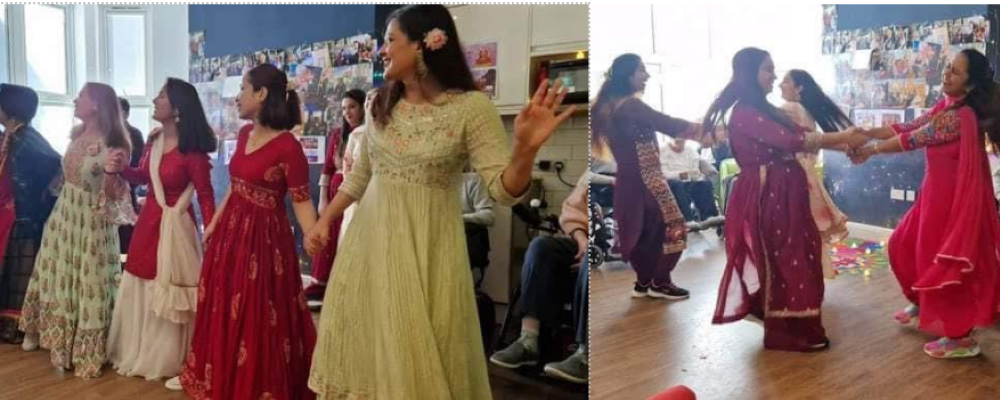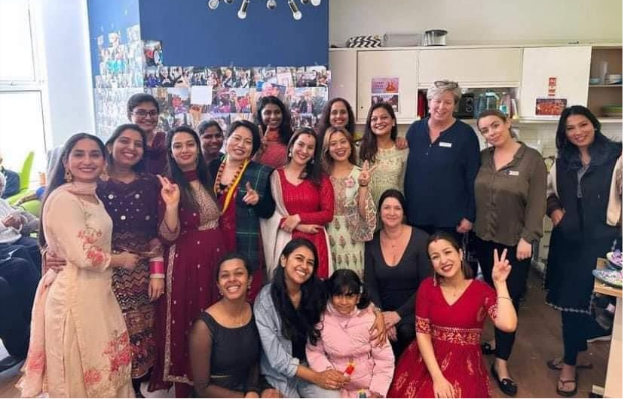What is the name of your intervention?
Celebrating Cultures – Inclusive Wellbeing Days
Health and wellbeing category
Mental Health, Inclusion and Belonging
Why did you choose this area of focus for your staff?
We have a diverse cultural workforce and wanted to celebrate and share this to create a sense of community, reduce isolation, promote understanding and strengthen team relationships.
It is vital to us that we embrace our diversity throughout the home, building a team that respects each other’s differences, we worked hard to avoid division within the teams.
Wellbeing Survey results had shown that staff wanted to share their traditions and heritage.
We believed it would
- Support mental wellbeing by giving staff pride in their identity
- Promote social wellbeing through community and connection – many of our staff travelled to the UK alone so building friendships in work was important to us
- Enhance inclusion and belonging, important for workplace mental health
- Boost morale by making individuals cultures visible and valued
Description of intervention
We have held several events, including celebrating Diwali and Onam, where staff arranged dances, wore traditional clothes and shared sweets. We have held an inclusion week where we encouraged staff to wear traditional dress, share food and share stories of their culture in our Facebook group. At our annual staff party staff brought in traditional dishes to share.
How did you involve your staff in the intervention?
In surveys we asked staff what kind of things they would like to share.
A group of Nepalese staff took the lead and offered to wear traditional dress and come in and dance – this was arranged and the whole Nepalese community were so excited and enthusiastic it encouraged others to do the same.
In our most recent ‘inclusion’ week staff have been invited to wear traditional clothes to work.
Our Hindu staff celebrated Diwali with us by sharing sweets and artwork.
How engaged were senior leaders in the intervention?
Our director leads the way in our inclusive mission statement; she is always supportive of events and funds these.
Senior Leaders are present during events and engaged.
How did you promote and raise awareness of this intervention to staff
We have internal promotions including posters and leaflets in staff rooms, email correspondence is sent, and Wellbeing Champion verbally promote events.
Events are always shared afterwards on our Facebook staff group, via email and printed pictures left in the staff room.
What has been the impact of this intervention for staff?
The whole home has a sense of community, we understand and respect the mix of cultures and enjoy learning from each other. Feedback has shown staff feel valued, proud to share their heritage and more connected with colleagues, supporting overall wellbeing and engagement
How do you plan to continue with this intervention in the future?
We will continue to celebrate festivals with staff, inviting everyone to share their traditions and heritage with us.
What have you learned from developing this intervention?
We have learnt the positivity that comes from practical lived experiences like food sharing and traditional dress days is worth more than any EDI policy or statement.
Even the small actions of showing interest in each other has had a strong impact on engagement and wellbeing.
This inclusivity has improved morale and team work.
Cultural awareness has also supported managers understand leave requests and better plan rotas more sensitively during festival periods.
Can you offer any advice to other organisations thinking about developing this kind of intervention?
For other organisations considering this intervention, our advice would be to start small and let staff lead. Even simple actions such as sharing food, encouraging traditional dress, or recognising important cultural festivals can make employees feel valued. It’s important to link these activities to staff wellbeing, not just diversity, and to be consistent so they become part of workplace culture. Above all, listen to staff feedback and use it to shape future events.
Sign up to the Healthy Workplaces mailing list
Please provide your details to receive our bi-monthly newsletter with the latest news, events, training and useful information to support the health and wellbeing of all who work in North Somerset.


